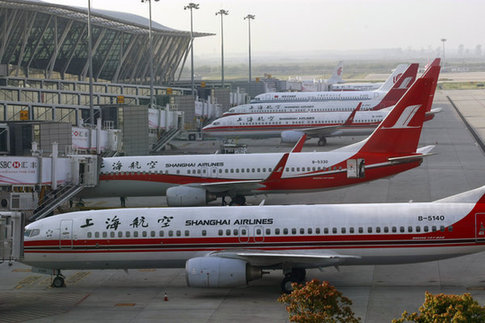
However, Li said China Eastern's share price was less grounded as it had surpassed the share price of China Southern Airlines, the nation's largest carrier by fleet size. "Shanghai Airlines seems to have more growth space thanks to the favorable share swap ratio of 1:1.3 with China Eastern," he said.
Although the two airlines have not disclosed their mid-year forecast, analysts expect China Eastern to show improvements in the first half, as it has already factored in the potential losses from fuel hedging bets made last year.
In addition, China Eastern also reported yesterday that since global oil prices rose 56.70 percent between Dec 31, 2008 and June 30, 2009, the carrier's loss in fuel hedging contracts would be alleviated by 2.74 billion yuan for the first half as of June 30.
Just a day earlier, Air China, another fuel hedging victim, said it expects first half profits to go up by more than 50 percent over 2008, gaining largely from the oil price volatility. The Beijing-based airline made a net profit of 1.282 billion yuan last year, with earnings per share (EPS) reached 0.11 yuan.
In the note confirming the merger last Sunday, China Eastern also revealed it will raise new capital by selling up to 1.35 billion of new A shares to 10 select institutions, including its parent, and as many as 490 million new H shares to its parent company in Hong Kong.
"Of the nearly 7 billion yuan to be raised, the parent China Eastern Air Holding Company will buy 3 billion, and another 4 billion yuan will go to other shareholders," said Li.
(China Daily July 17, 2009)